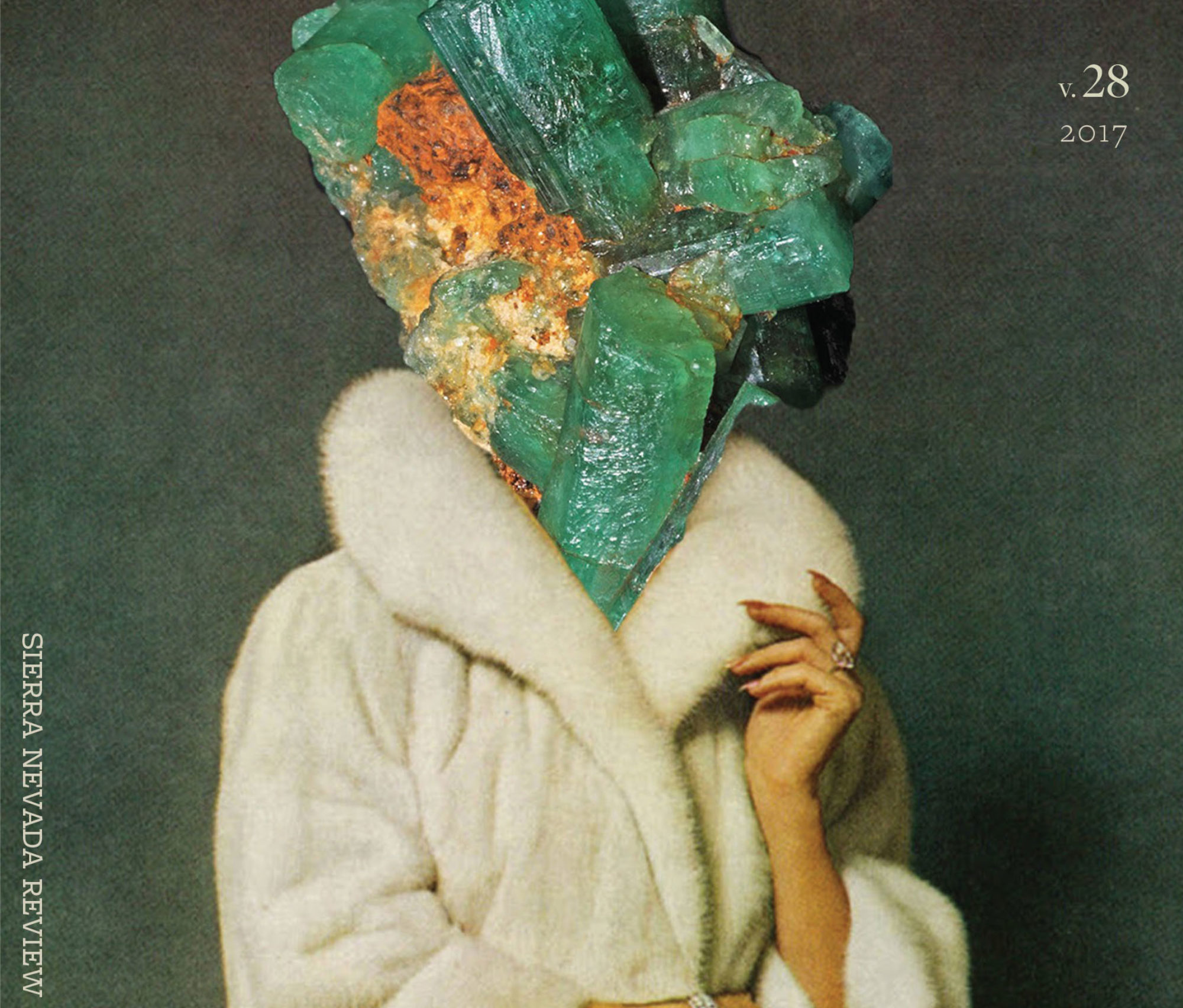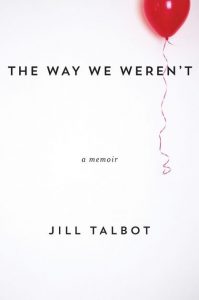2015
Nonfiction
$15.95; 304 pages
Soft Skull Press
ISBN: 978-1593766153
Competing Histories of Shame: Jill Talbot on Family and Loss in The Way We Weren’t
by Michael Fischer
The mother stands at a window, staring out at the rehab center parking lot like a lonely, cooped up pet, waiting for her daughter. The daughter thinks she’s visiting her mother at “special school,” one where even the teachers don’t get to go home at night. She’s too young to know the truth. Besides, it’s Christmas.
Finally, a car pulls up and the daughter tumbles out wearing her holiday best, flying toward the front door of the rehab with a gift in her hand. Even years later, the mother can hardly bear this image of her daughter, “running for the mother who is locked up and not allowed to leave.” The daughter’s gift is a framed piece of paper with three words on it: “Please come home.”
It’s upon stark, poetic scenes such as this that Jill Talbot builds The Way We Weren’t, a first- and third-person memoir-in-essays that pries open motherhood, addiction, obsession, place, and memory. Having been abandoned (or maybe Talbot does the leaving, she admits, depending on where you start, on who’s keeping score) by her lover Kenny when their daughter Indie was only four months old, Talbot fights to be a good parent and professor while trying to beat back alcoholism, financial ruin, and the dislocation brought on by constant moves.
Using everything from court documents to a wine menu to a mock course syllabus, Talbot paints a portrait of a woman chased by her regrets. She zigzags across the country with her daughter in search of home, sobriety, and a steady teaching gig, fixated on a man she remains desperate to reconnect with (“There had been too many years of silence… I had to say something. Anything.”) Looking back, she tries to figure out which memories actually happened, and which ones she has invented over time. “Years from now,” Talbot admits, during a third-person recounting of a conversation with Kenny, “she will not be able to recall if there ever was such a morning conversation over coffee or it was just something she wrote.”
As a child, it’s easy to believe that family traumas like the ones Talbot describes affect you and you alone. I remember visiting a parent in rehab when I was young, staring at the drooping Christmas tree set up in the entryway, and wondering why this was happening to me. Adults seem—if only by virtue of age, height, seeming omnipotence—eminently capable and emotionally solid, able to prevent all hardship if they only cared enough. Indeed, the misery memoir subgenre is full of adults who still believe this, angry at their parents for not raising them well enough.
Talbot, who with her four college degrees would seem on paper to be the epitome of stability and control, exemplifies the fact that it’s never quite that simple. She illustrates the searing reality of what it’s like to be a parent in crisis, doing her best but still falling badly behind. She diagrams the pain of watching oneself fail, in slow motion, the people one loves most: town after town, job after job, bottle after bottle.
Given the obsessive spotlight Talbot trains on her own pain and relationship (or lack thereof) with Kenny, it’s ironic that some of the most thought-provoking and insightful moments in her book are the ones that pass with no comment at all. I found it sadly telling that Talbot makes more money working waitress jobs than she does during her posts as a college professor, a PhD and boundless passion for her subject worth next to nothing on the job market. The ominous, unspoken truth is that if a woman as driven, intelligent, and educated as Talbot can find herself sleeping on an air mattress as a broke single mother, any of us can.
Even more troubling is the fact that, over the course of more than a decade, only one county court manages to wring a single child support payment from Kenny. The system lets the absentee father off the hook, betraying Indie and leaving Talbot to fend for herself. The reader learns this in an italicized epilogue to a court transcript (“No payments have been received since, and his whereabouts remain unknown”); the courts’ culpability goes unmentioned, hanging in the air like stale smoke.
Talbot does have a tendency to soak too long in the waters of her own hurt, often framing her story as a solitary—as opposed to shared—struggle. This seems unfair to Indie, whose suffering is often relegated to the background. At one point Talbot writes of how she feels most at home near borders and in undefined spaces. “I suspect Indie feels a bit of that, too,” she muses, seemingly as an afterthought. When Indie almost dies after a bout of carbon monoxide poisoning, Talbot quickly moves past scolding herself for missing the obvious signs that her furnace was killing her daughter. Instead, she focuses on the fact that if either Talbot or Indie had died, “Kenny wouldn’t know it”—a far less important train of thought, I would think, than the effect of this experience on Indie.
But while the narrative sometimes veers into self-pity and rumination, it is Talbot’s overarching interrogation of memory and her own faults that holds the work together. “Fiction and history,” she writes, “are neighbors.” Even when a history is shared, “we tell competing versions of it.” Did Kenny leave, or did she? Which of them is the bad parent, which the lost soul?
It would have been easy for Talbot to paint Kenny as a one-dimensional villain and herself as the hero of her own story: the parent who stayed and did the right thing, the long-suffering single mother with a heart of gold. Instead she catalogs her every parenting mistake and gallon of wine, bares all her flaws without mitigation—an unflinching honesty to counterbalance the book’s more solipsistic moments. No one here is a victim, Talbot seems to say. And everyone is. Whose version, whose memory, whose truth can be trusted? Who can be sure?

Michael Fischer is a managing editor of Sierra Nevada Review, a Moth Chicago StorySlam winner, and a Luminarts Foundation Fellow in Creative Writing. His essays appear or are forthcoming in The Sun, Brevity, Hotel Amerika, The Rumpus and elsewhere.


This blog about Book Review: Jill Talbot’s The Way We Weren’t, is a very
usefull and i will share it! How I made money without 9-5 job, here:
https://s96.me/overnight-millionaire Kiss you all!
Appreciate it for this grand post, I am glad I noticed this website on yahoo.
google porn porn google